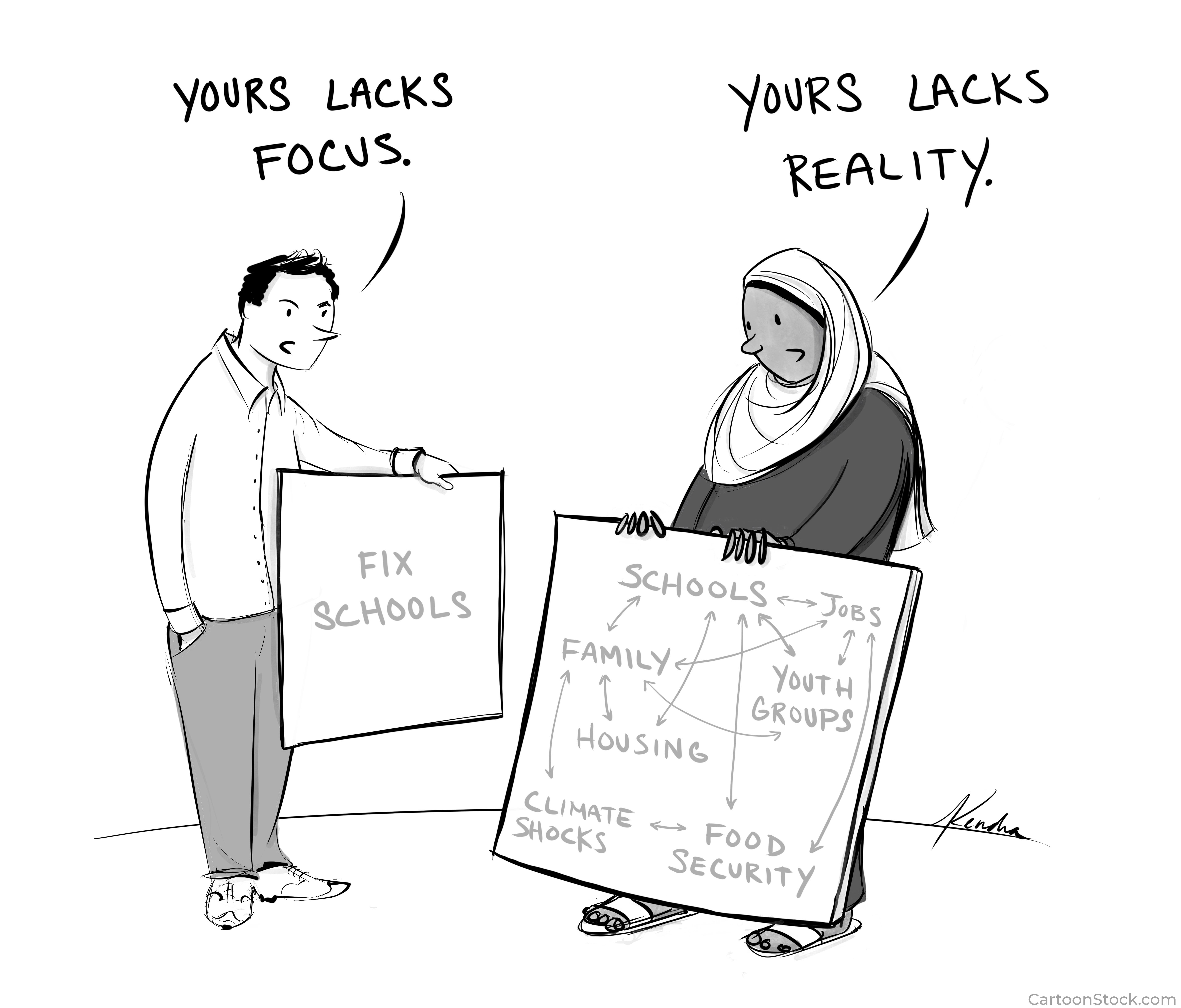The newsletter of the SDC Agriculture & Food Systems Network provides you with the latest news submitted by the network members four times a year: projects, publications, events, network activities - everything to do with food systems. Feel free to subscribe by clicking the button on the right (network members are automatically subscribed).

Feature |
Member Articles |
News |
Who is who |
Comic |
Editorial
Dear Reader,
It is my pleasure to share with you the second edition of this year’s Agriculture & Food Systems Network Newsletter. With the Food Systems Learning Journey (FSLJ) coming to an end, our summer edition reflects some of the emerging and cross-cutting key topics of the FSLJ itself.
The FSLJ has really been a journey. Since its launch in September 2022, we've travelled around the world holding regional workshops, webinars, and global feedback seminars (like the two most recent ones in Santa Cruz de la Sierra and in Bangkok). Working together, as members of SDC and partners, we have exchanged valuable insights and jointly reflected on how to improve existing food systems to plan for the future in a rapidly changing world.
We were happy to analyse and present the key findings of the FSLJ at the final summative event from 14–15 June 2023. Still, this final event was by no means the end of the FSLJ. The first post-COVID-19 in-person Face-to-Face-Meeting awaits us in Rome from 26–28 September and will build on the findings of the FSLJ. There we will reflect together on how we envision working as a network in the following years. Therefore: a lot is yet to come!
But going back to this summer edition of the AFS newsletter, the crosscutting themes of Youth and Agroecology guide us through the included articles:
- We start off with our feature piece on the inaugural Eastern Africa Agroecology Conference which was held in April in Kenya. Have a look at the comprehensive summary and the key take-aways of the four-day-long event that Njoki Thuo has summarised for you.
- Next up we have Sarah Ryser from Unité with an interesting article on the relevance of organic/bio-products in Burkina Faso.
- In the next article Helen Prytherch from the Swiss Tropical Institute takes us to Rwanda and Kenya and introduces us to a NICE project which provides financial assistance to women and youth.
- Also have a look at the recap of the “Solutions for a d(r)ying world” event, jointly organised by CDE, WOCAT, University of Bern and SDC.
- Then SNV introduces us to their ongoing plans to support youth ambitions through the Constituency Development Fund (CDF) in fostering sustainable agricultural food systems in Zambia.
- Finally, two articles highlight the importance of inclusive market systems.
The news items of this edition showcase two training materials: A training-video on local plant varieties in India and new training material on organic agriculture in Africa. Finally, we are happy to introduce you to our colleague Jean d’Amour Gatera.
At this point we want to thank everyone who submitted a contribution to this newsletter and we hope you enjoy the read!
All the best,
Lara
P.S.: Check out the comic at the end of the newsletter! Does the pictured challenge look familiar to you and your work? ;)
 Lara Sponagel
Lara Sponagel
Academic trainee, Section Food Systems, SDC
LinkedIn | lara.sponagel@eda.admin.ch
Feature
Inaugural Eastern Africa Agroecology Conference
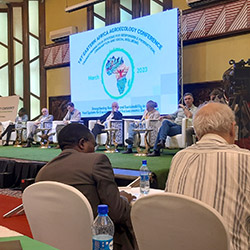 Agroecology, the answer to sustainable food systems! That was the teaser for the first Agroecology Conference in Eastern Africa held in April in Kenya. The four-day conference attracted delegates from all professions and regions in Africa championing for agroecology. The conference appealed to participants, as well as the general East African population, to rethink investments in current food systems, urging food systems decision makers to transition to more environmentally friendly production systems; all of which can be found under the practicing umbrella that is agroecology.
Agroecology, the answer to sustainable food systems! That was the teaser for the first Agroecology Conference in Eastern Africa held in April in Kenya. The four-day conference attracted delegates from all professions and regions in Africa championing for agroecology. The conference appealed to participants, as well as the general East African population, to rethink investments in current food systems, urging food systems decision makers to transition to more environmentally friendly production systems; all of which can be found under the practicing umbrella that is agroecology.

Njoki Thuo
Independent Agricultural Consultant
LinkedIn |
Njokithuo03@gmail.com
On March 2023, over 500 delegates congregated at the Safari Park Hotel and Casino for the first ever Eastern Africa Agroecology Conference, with the aim of transforming food systems for responsible production, consumption and social well-being. The four-day conference attracted delegates from all professions and regions in Africa championing for agroecology in the continent.
Agroecology was the key practice of focus for the participating organisations, who also had displays at the conference showcasing working solutions under the practice working towards a food-secure Eastern Africa. Agroecology, as defined by FAO, is an integrated approach that simultaneously applies ecological and social concepts and principles to the design and management of food and agricultural systems. It seeks to optimise the interactions between plants, animals, humans, and the environment while taking into consideration the social aspects that need to be addressed for a sustainable and fair food system.
Apart from the exhibitions there were panel discussions, keynote speeches, breakout sessions, and farm visits to several practicing farms in Kenya. Online participants were also well accommodated.
The conference appealed to participants as well as the general East African population to rethink investments in current food systems, urging food systems decision makers to transition to more environmentally friendly production systems; all of which can be found under the practicing umbrella that is agroecology.
In his remarks, the main guest – Hon Fred Bwino Kyakulaga, the Minister of Agriculture, Animal Industry and Fisheries Uganda – commended the agroecology movement in Africa for the initiatives executed in the region so far. He confirmed his government’s commitment to the movement, as Uganda leads the region in adoption and practice of agroecology and or organic agriculture as a production system. He further stated that collaboration, partnerships and knowledge sharing between stakeholders are the key pillars to the transformation of the food system in the region.
One of the keynote speakers – Dr. Emma Siliprandi representing FAO – shared lessons learnt from FAO’s agroecology initiatives as well as solutions for success in the future for a healthy planet and people! One of the standout successes was the introduction and adoption of the Tool for Agroecology Performance Evaluation (TAPE), which is currently used in 40 countries, spread across five regions, supporting 5036 households in 24 languages! She also noted that her department championed for the approval of the 10 elements of agroecology which led to the establishment of the 13 principles that have been globally adapted. Through various initiatives, several e-courses have been developed, publications submitted, a food security committee formed, and the icing on the cake – the formation of an agroecology coalition from the UN Food Systems Summit.
For agroecology to be widespread in the region, most keynote speakers, panelists and breakout-session presenters all intimated that for the success of the movement, the gaps that needed to be closed are:
- Investments in agroecology by all players – from farmers to governments, research institutions, the private sector, humanitarian players, change actors, and consumers.
- Knowledge and innovation sharing for working solutions.
- Policy development, support and implementation withing the local context.
Dr Hans R. Herren from the Millennium Institute noted that the pathways provided by agroecology can lead, and have the potential to achieve, the SDGs within planetary boundaries by 2050. Some of the solutions showcased and discussed included production technologies like the Push-Pull Technology for the control of stemborers, fall armyworm and striga in maize, the use of local indigenous plant varieties, biological control of pests, localized certification, among many more.
Opportunities for entrepreneurs in the agroecology ecosystem are immense and as wide-ranging as the African continent, as stated by Ms Diana Akullo Ogwal, representing the African Continental Free Trade Area (AfcFTA) of the African Union. AfcFTA, which is the largest trade agreement globally, represents an estimated market worth of USD 3.4 trillion with about 1 billion consumers. She further urged small and medium Enterprises (SMEs) present to take advantage of the trade agreement at least within East Africa, as SMEs are critical to the success of the trade agreement, accounting for more than 90% of the players on the African continent.
This calls for SMEs to invest the capital at hand into agroecology. Apart from the SMEs, Biovision Foundation CEO Frank Eyhorn noted that the sector needed heavy financing from all players including, but not limited to, consumers, food system enterprises such as farmers, banks and investors, multilateral development banks, governments, and philanthropic organisations. The call to action that will see agroecology grow in the region focused mainly on resource mobilisation by all players from global, continental and regional levels to promote adoption and scaling of agroecological principles and practices. Apart from the resource mobilisation, the Eastern Africa players were tasked to establish an Eastern Africa standard for ecological organic trade, markets and economy, as well as a standing commitment to hosting the conference every two years.
Members Articles
Why is the demand for organic/bio-products increasing in Burkina Faso?
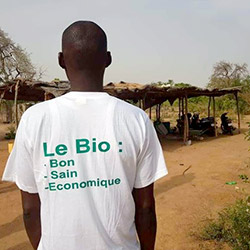 Agricultural production in the Sahel countries is becoming increasingly difficult, due to the increasing fragility of the region. Traditional farming methods are no longer able to meet the increasing demand. To address these challenges, Unité's member organisation E-CHANGER in Burkina Faso supports CNABio in promoting organic and agroecological farming practices. (Original article was published in German).
Agricultural production in the Sahel countries is becoming increasingly difficult, due to the increasing fragility of the region. Traditional farming methods are no longer able to meet the increasing demand. To address these challenges, Unité's member organisation E-CHANGER in Burkina Faso supports CNABio in promoting organic and agroecological farming practices. (Original article was published in German).
 Sarah Ryser
Sarah Ryser
Unité
LinkedIn |
s.ryser@unite-ch.org
E-CHANGER's Personnel Development Co-operation specialises in capacity building and collaboration with partner organisations in countries of the South. Since 2002, the member organisation of the umbrella organisation Unité has been active in Burkina Faso, a country whose security situation has steadily deteriorated in recent years, and which today scores 85.9 out of 120 on the Fragile State Index.
The equally unstable situation in neighbouring Mali, Chad and Niger, an increasing number of internally displaced persons due to inter-ethnic conflicts and terrorist activities by fundamentalist armed groups, growing demographic pressure on resources, and weak state structures all contribute to the instability of the West African country. Increasing poverty and the consequences of climate change are further factors increasing Burkina Faso's fragility.
Establishment of a national market for organic products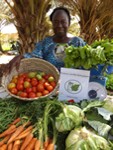
In addition to climate change, the extensive use of genetically modified seeds in Burkina Faso has led to a deterioration of environmental conditions, the gradual disappearance of traditional varieties of seeds and, accordingly, the dependence of farmers on new seeds.
In 2011, the Conseil National de l'Agriculture Biologique (CNABio) was founded to counteract this development, which is harmful to people and the environment. Its aim is to promote organic agriculture, to build up a national market for organic products and to connect the various players with each other as well as with consumers.
These activities help improve the income of smallholder farmers while conserving natural resources. Agroecology promoted by CNABio reduces water pollution, increases soil fertility, and produces chemical- and toxin-free food. Although CNABio is only 10 years old, it has already achieved a great deal. The umbrella organisation now has nearly 80 members, all of whom are committed to promoting agroecology and organic agriculture. It offers training to strengthen the capacities of its members and lobbies the authorities.
Thanks to CNABio, an agroecology focal point has been established in the Ministry of Agriculture of Burkina Faso, and the government is in the process of drafting a national development strategy to promote agroecology. In addition, many agricultural training institutions have incorporated or are in the process of incorporating agroecological farming practices into their curricula.
Clémence Samba/Lankouandé, coordinator of CNABio, is particularly pleased: "When we started our work 10 years ago, organic and agroecological farming methods were hardly known among the Burkinabe population. Today, the demand for organic and agroecological products is high, even at the national level, because consumers are aware of the benefits of a healthy diet and sustainable production.
The first Burkinabe BIO label
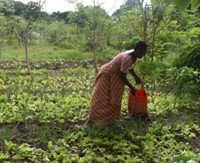 Probably the most important achievement of CNABio is the development and operationalisation of the BioSPG label, which certifies the organic quality of agroecological products by certified producers. It is the first national standard for organic agriculture and one of the first organic labels in West Africa.
Probably the most important achievement of CNABio is the development and operationalisation of the BioSPG label, which certifies the organic quality of agroecological products by certified producers. It is the first national standard for organic agriculture and one of the first organic labels in West Africa.
The standard requires that agriculture has to be as resource-conserving as possible, by following the principles of crop rotation and using only organic fertilisers; synthetic pesticides or chemical fertilisers are prohibited, as are genetically modified varieties. In recent years, many new producers have been recruited for the BioSPG label, also thanks to the support of René Emmenegger, who provided expert assistance with E-CHANGER between 2017 and 2020. Today, 410 producers at 36 locations are certified, which corresponds to an area of over 80 hectares.
Cheik Bambara is a graduate engineer for rural development and specialises in supporting farmers' organisations. He continues Emmenegger's work: "I have been working at CNABio since 2020 to promote and improve the BioSPG label and support the certified producers in marketing their products. A large number of our farmers have been able to significantly increase their production and the label gives them a market advantage. It's nice to see that my work is helping to improve food sovereignty and farmers' incomes.
Still, CNABio does not want to rest on its previous achievements. It aims to expand its activities to other parts of the country and to convince as many farmers and consumers as possible of the added value of the BioSPG label.
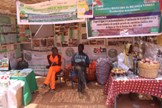 Burkina Faso still has a long way to go before it can say goodbye to pesticides and chemical fertilisers. However, agroecological farming methods help to strengthen the resilience of the Burkinabe population on an economic and ecological level, so that they can better cope with the increasing fragility and have more perspectives again.
Burkina Faso still has a long way to go before it can say goodbye to pesticides and chemical fertilisers. However, agroecological farming methods help to strengthen the resilience of the Burkinabe population on an economic and ecological level, so that they can better cope with the increasing fragility and have more perspectives again.
ECHANGER's program in Burkina Faso is co-financed by the Swiss Development Cooperation (SDC), within the framework of the institutional program of Unité.
Small grants schemes empower women and youth in Kenya and Rwanda
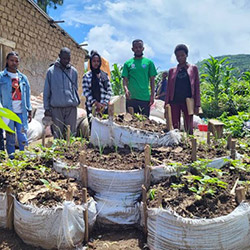 Due to suboptimal diets, one-third of the world’s population currently suffers from malnutrition. To empower self-assistance ideas of motivated women and youth groups contributing to more diversified (and thus healthier) diets, the NICE project provides financial assistance through a mixed financial and in-kind grant system in Kenya and Rwanda.
Due to suboptimal diets, one-third of the world’s population currently suffers from malnutrition. To empower self-assistance ideas of motivated women and youth groups contributing to more diversified (and thus healthier) diets, the NICE project provides financial assistance through a mixed financial and in-kind grant system in Kenya and Rwanda.
 Helen Prytherch
Helen Prytherch
Swiss Tropical and Public Health Institute (Swiss TPH)
LinkedIn |
helen.prytherch@swisstph.ch
While excess weight and obesity are increasing worldwide, food security levels are worsening in many low- and middle-income countries – especially with the COVID-19 pandemic, the war in Ukraine and the persisting climate crisis. Due to suboptimal diets, one-third of the world’s population suffers from malnutrition. Also, particularly in the urban setting, many people experience a pronounced shift away from traditional staples, such as millet or pulses, towards staples prepared more conveniently (rice, pasta, or bread) or foods high in sugar.
This is a result of changes in lifestyles including, but not limited to, moving out of a farming household, different relative prices for food, and often increased incomes. Nutrition literacy – the knowledge about diversified diets – and attractiveness of several healthy and nutritious food items are also often poor.
Nutritious and agroecologically produced foods offer the potential to improve diets, transform food systems and alleviate pressure on the environment. The Nutrition in City Ecosystems (NICE) project aims to improve nutrition for city populations through agricultural, food and health sector collaborations and a better linkage of supply and demand for nutritious and agroecologically produced food. Furthermore, the NICE project is also looking to support women and youth engaged in the city food system to contribute to urban food system transformations through initiatives for diversified diets through local production.
Women and youth play a key, but under-recognised and often informal, role in city food systems where they may lead growing, processing, and marketing of foods, while also carrying the responsibility for their family’s healthy nutrition. Women and youth’s roles, and representation in food system governance, decision-making, and access to productive resources, are often limited, leaving them with only few opportunities to influence and get fairer returns from a food system that largely depends on them to function.
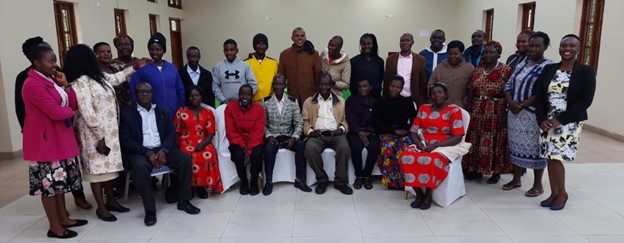 NICE small grant applicants in Bungoma, Kenya, during a joint training session on proposal writing and how to implement projects successfully (photo credit: SFSA Kenya).
NICE small grant applicants in Bungoma, Kenya, during a joint training session on proposal writing and how to implement projects successfully (photo credit: SFSA Kenya).
To empower self-assistance ideas of motivated women and youth groups contributing to more diversified, and thus healthier diets, the NICE project started to provide financial assistance through a mixed financial and in-kind grant system in Kenya and Rwanda. The premise is that by providing start-up support to women and youth, they can put their promising ideas into practice, fostering entrepreneurship and sustainable food system transformations.
In close collaboration with the county authorities of the cities of Bungoma and Busia, in Kenya, as well as Rubavu and Rusizi city-districts in Rwanda, six and eight well-functioning but unsupported women and youth self-assistance groups were invited to prepare a proposal for the NICE small grants in Kenya in September 2022 and in Rwanda in January 2023. The grants aim to improve food production and make diets more diversified, and had to be complemented by a contribution from the groups themselves. Invited applicants underwent a dedicated development and budget proposal programme and received inputs on good-nutrition practices in general, project management, and information on sharing and networking.
All but one of the invited women and youth groups are now implementing their activities. Through regular visits (bi-weekly checkins) from the NICE city coordinators, small grant recipients were closely accompanied through the three-month grant period to ensure adequate use of the supplied inputs.
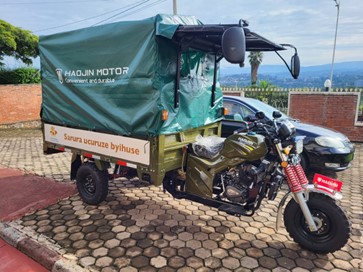
NICE branded three-wheel motorcycle provided to the GIRIMPUHWE widows’ cooperative to support production and faster transportation of their vegetables and fruits (“Sarura ucuruze byihuse) thus improving their livelihood (photo credit: Swiss TPH Rwanda).
Unfortunately, the heavy floods in May 2023 in the Western Province of Rwanda destroyed the horticulture activities that had been initiated by two supported groups in Rubavu, and this situation is now receiving focused attention.
Meanwhile, the following are all proceeding well: increased acreage for first-cycle production of African Leafy Vegetables for the Walatsi Locational Self-help Group in Busia, Kenya; support for kitchen garden construction for peri-urban families through the Baho Neza Muryango youth group in Rubavu, Rwanda; a new transport vehicle for the GIRIMPUHWE widows’ cooperative selling self-cultivated fruits and vegetables in different markets in Rubavu, Rwanda; contributions to increased irrigation possibilities for the CCPGK cooperative in Rusizi; and support to set up chicken-feed production at the Neo-Hen farms youth social enterprise in Bungoma, Kenya.
A second round of small grants in the Kenyan and Rwandan NICE cities is already planned, with the next round of groups already identified and invited.
Solutions for a d(r)ying world
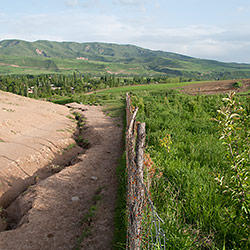 Four institutions and organisations recently organised a high-level event which focused on the future of our land. The topic could hardly be any more pressing: how can we achieve land degradation neutrality by 2030? Many answers were provided and discussed by the invited high-level experts.
Four institutions and organisations recently organised a high-level event which focused on the future of our land. The topic could hardly be any more pressing: how can we achieve land degradation neutrality by 2030? Many answers were provided and discussed by the invited high-level experts.
 Stéphanie Piers de Raveschoot & Lara Sponagel
Stéphanie Piers de Raveschoot & Lara Sponagel
Swiss Agency for Development and Cooperation (SDC)
LinkedIn | stephanie.piers-de-raveschoot@eda.admin.ch
Reaching land-degradation neutrality by 2030
The Centre for Development and Environment (CDE), the University of Bern, the World Overview of Conversation Approaches and Technologies (WOCAT) and the Swiss Agency for Development and Cooperation (SDC) jointly organised a high-level event around sustainable land management on 10 May at the University of Bern. The keynote speech by Ibrahim Thiaw, the UN Under-Secretary-General and Executive Secretary of the Convention to Combat Desertification (UNCCD), was followed by a panel discussion on the future of our lands. The topic could hardly be any more pressing: how can we achieve land degradation neutrality by 2030?
Healthy land is central to the wellbeing of the planet’s ecosystems and biodiversity; it feeds us, shelters us, and provides the backbone to our global economy. But today, up to 40% of the world’s land is degraded. Around half of humanity is directly affected. Therefore, effective sustainable land management is prioritised also on a global policy level: all three Rio Conventions, namely the United Nations Framework Convention on Climate Change (UNFCCC), the Convention on Biological Diversity (CBD), and the United Nations Convention to Combat Desertification (UNCCD), address the topic. Still, the question remains: do we have the knowledge and the tools for it? And how can we work together to restore land and boost resilience?
Keynote speech by Ibrahim Thiaw: from helpless despair to restoring hope
During his official visit to Switzerland, Ibrahim Thiaw gave the keynote speech on the future of our lands. His speech set the scene for the following contributions and discussions: the unprecedented levels of land degradation that put agricultural production under pressure, increase poverty and pose an active threat towards human health. Specifically, that means that the quest for higher productivity without further consideration is a threat to the economy in the long term. He states that if we do not change our ways of production, we risk losing half of the GDP by mid-century, due to the inability of the land to produce more – a risk further aggravated by a steadily growing population. This is also directly linked to increasing threats to human health (emerging infectious diseases, increase of non-communicable diseases etc.).
Ibrahim Thiaw stated that humanity depends on two things: “A thin layer of soil and a few millimetres of rain.” Therefore, we have to prevent future soil loss and droughts. The key for sustainable solutions lies in land restoration: if it is accessible to all it could be the cheapest solution to climate change, be a durable solution and restore food production. He concluded: “We have to move from helpless despair to restoring hope.”
Gender and land governance: “Her land, her rights”: Nicole Harari (WOCAT), Markus Giger (UNIBE)
The second part of the event was dedicated to the Desertification and Drought Day 2023 on 17 June, which focuses this year on “Her Land, Her Rights”, with the goal to advance gender equality and land-restoration goals.
Nicole Harari highlighted the efforts WOCAT is undertaking to change the predominant narrative – focus on good land management and create a world-map of good practices instead of only pointing out the negative developments and approaches. WOCAT is a global network on sustainable land management (SLM) that promotes the documentation, sharing, and use of knowledge to support adaptation, innovation and decision-making in SLM. Harari states that to sustainably prevent desertification, land tenure rights and security are crucial. Specifically, that means to secure access to land and prevent land loss for farmers, and acknowledge and engage with the fact that commercial interests have impacts at the expense of local communities. Still, reality is far from that, and the role of women and indigenous people is crucial.
This was further elaborated on by Markus Giger, who said there are big knowledge gaps, especially in technology-related aspects (special focus on access and control of diverse inputs facilitating sustainable land use and tenure) in regards to gender. Therefore, empowerment, access for women to tools and knowledge, and the long-term inclusion of women in the implementation and design of the programming and planning of food-systems approaches are crucial.
The high-level panel members were Ibrahim Thiaw, Marylaure Crettaz (Head of Food Systems section, SDC), Norbert Bärlocher (Head of Rio Conventions section, FOEN), Andrew Kihurani (Ambassador of Kenya to Switzerland), and Sarina Nick (Co-Head Environment, Transport and Energy Program, Foraus). They engaged in a lively panel discussion. Keywords that structured and reflected the discussion are: interdisciplinary research, resilience strengthening, land degradation/land governance, food security, livelihoods, nutrition, environmental health, climate change (being a political challenge before being a technical challenge), and gender responsive transformation.
These topics highlighted time and again that it is crucial to understand the complexity we are addressing and to understand the interlinkages of the different elements of food systems. Therefore, a holistic and intersectoral approach is needed, where especially women and youth can act as agents of change.
To sum up the event, three take-away messages were:
- We are dealing with a difficult situation. Still, there is a lot of knowledge available and we need to speed up our joint efforts.
- We live in an age of interdependencies. Therefore, a systemic approach is needed.
- Solidarity is key! These global issues call for a joint approach and global collaboration is needed to overcome national interests.
Zambia's Constituency Development Fund empowers youth in agriculture
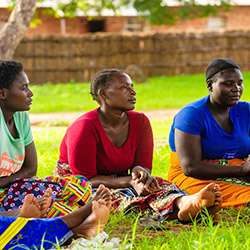
The Zambian government’s ongoing aspirations to support youth ambitions through the Constituency Development Fund (CDF) in fostering sustainable agricultural food systems are being realised through the dedicated efforts of SNV's Opportunities for Youth Employment (OYE) project, in partnership with the Swiss Agency for Development and Cooperation (SDC) and the Embassy of Sweden in Zambia (Sida).
Alex Mwila, Robson Nyirenda, Etambuyu Sitwala, Thando Nkomo, Sharon Wekwete (submitted by Sharon Wekwete)
By collaborating closely with both national and local government officials, SNV is facilitating access to finance for young people, thereby creating opportunities for them to actively participate in the agricultural sector. At the forefront of this initiative are two inspirational youth leaders who have become champions of change within their communities.
Wellington Chileshe (27), the ward councillor for Mumbuluma Ward in Mporokoso district, Northern Province, Zambia, who has also benefitted from OYE’s skills development, financial literacy and technical training, has emerged as a prominent figure in promoting youth empowerment.
In 2022 alone, he successfully linked 11 clubs, comprising 220 individuals, to grants which aimed to boost their agricultural enterprises. Moreover, he facilitated loans for four additional clubs, empowering them to expand their operations and increase productivity. Additionally, Wellington enabled 42 individuals to gain access to financial resources for personal empowerment and supported 300 youths with secondary school bursaries, ensuring that education remains accessible to all.
Together with Trevor Siafunda (31), a proactive ward councillor for Nangoma Ward in Mumbwa District in Central province, Zambia, the two youth leaders have been fervently encouraging their peers to join the project’s Youth Savings and Lending Groups, which have been popular. Currently, more than 5,000 youths across the country are actively participating in savings activities, collectively accumulating a total share value of K2,122,297.60 (equivalent to USD 106,114.88). This noteworthy figure represents an impressive growth rate of over 100% from the share value recorded in the previous year.
It is particularly encouraging to observe that the participation of young women in the savings initiatives surpasses that of their male counterparts. In a country where economic activities are dominated by males, this significant female representation – exceeding 65% – is a testament to the progressive strides being made towards gender equality in Zambia. By actively engaging in savings groups, these young women are not only securing their own financial futures but also empowering themselves to become drivers of local economic development within their communities.
The impact of the Youth Savings and Lending groups extends beyond individual financial security. As young people gain access to loans facilitated by the CDF, they are empowered to venture into diverse business opportunities, including those within the agrifood sector. This entrepreneurial drive, boosted by the financial resources provided, has enabled these industrious youths to create employment opportunities for their peers. By launching and growing their businesses and agricultural enterprises, they are helping to address youth unemployment, stimulating economic growth, and contributing to the development of a sustainable agrifood system.
Through the collaboration between SNV, the government, and the unwavering dedication of youth leaders like Wellington Chileshe, the CDF is being leveraged as a catalyst for change in Zambia's agricultural sector. By unlocking financial resources and promoting skills development among young people, the OYE project is empowering a new generation of agricultural entrepreneurs. With their innovative ideas, determination, and newfound access to finance, these ambitious youths are revitalising local economies, creating employment opportunities, and ensuring a more prosperous future for themselves and their communities.
Ambrose Sibanda shakes up export industry at Zimbabwe International Trade Fair
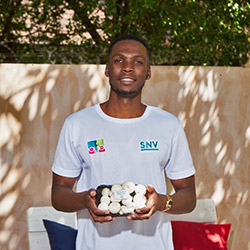 The topic of this year’s International Trade Fair of Zimbabwe (ZITF) was “Transformative Innovation, Global Competitiveness”. Among the notable participants was Ambrose Sibanda (28), a young entrepreneur who is swiftly making a name for himself in the export industry. He is one of the promising youths who has undergone training and mentorship through the SDC-supported Opportunities for Youth Employment (OYE) project being implemented by SNV in Zimbabwe.
The topic of this year’s International Trade Fair of Zimbabwe (ZITF) was “Transformative Innovation, Global Competitiveness”. Among the notable participants was Ambrose Sibanda (28), a young entrepreneur who is swiftly making a name for himself in the export industry. He is one of the promising youths who has undergone training and mentorship through the SDC-supported Opportunities for Youth Employment (OYE) project being implemented by SNV in Zimbabwe.
Thando Nkomo, Tatenda Masengeren, Sharon Wekwete (submitted by Sharon Wekwete)
SNV Netherlands Development Organisation
LinkedIn | swekwete@snv.org
The 2023 Zimbabwe International Trade Fair (ZITF), held from 25–29 April in the country’s second largest city of Bulawayo, was a vibrant showcase of innovation geared towards global competitiveness.
Among the notable participants was Ambrose Sibanda (28), a young entrepreneur who is swiftly making a name for himself in the export industry. He is one of the promising youths who has undergone training and mentorship through the SDC-supported Opportunities for Youth Employment (OYE) project being implemented by SNV in Zimbabwe.
The ZITF, recognised as one of Zimbabwe's leading international exhibitions, sets the stage for unveiling industry trends, ground-breaking ideas, and innovative products. Drawing a diverse audience, the fair promotes trade and investment within the country while creating a platform for regional and international market exposure.
The theme of this year's event, "Transformative Innovation, Global Competitiveness", aligned well with Sibanda's vision. He seized the opportunity to showcase his fresh produce – both oyster and button mushrooms, along with dried mushrooms – to an international audience and generated a buzz around his burgeoning business.
SNV Zimbabwe was among the organisations participating in the event. Its exhibition aimed to underscore its various developmental interventions and highlight the organisation’s experience in youth employment and entrepreneurship and climate risk management.
The exhibition also aimed to spotlight emerging OYE entrepreneurs like Sibanda, allowing them to exhibit their products, strengthen their marketing and networking skills, and gain exposure to new innovations. In addition, the event served as a platform to explore business-to-business opportunities for collaboration and networking, creating fertile ground for young innovators. As one such innovator, Sibanda not only presented his products but also took the opportunity to transform the food system by demonstrating an efficient and profitable mushroom cultivation and processing model. This entrepreneurial pursuit offers a promising approach to earning livelihoods, and potentially inspiring other youths to follow suit.
Sibanda's participation in the 2023 ZITF is an example of youth taking the lead in transforming food systems and marks his emergence as an upcoming player in the export industry. With the insights and connections he gained at the event, his prospects for making a significant impact on both the local and international stage, with support from SNV and the ecosystem around him, look positive.
Beyond formality: embracing informal markets can drive inclusive economic growth
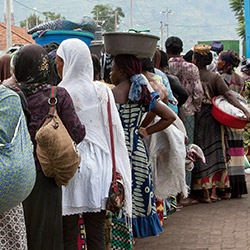
Informal food markets play a fundamental role in providing food and livelihoods to millions of people in low-income countries, but are often overlooked . A recent paper, published by the International Institute for Environment and Development (IIED) and SNV, urges development organisations to work constructively with informal actors.
John Belt
SNV Netherlands Development Organisation
LinkedIn | jbelt@snv.org
Did you know that informal food markets play a fundamental role in providing food and livelihoods to millions of people in low-income countries? Yet, they are often overlooked and undervalued or outright criminalised. Recognising and supporting these informal food systems is crucial to achieving the Sustainable Development Goals (SDGs) for food and nutrition security, decent work, gender equality, urban resilience, and climate action.
A recent working paper, published by the International Institute for Environment and Development (IIED) and SNV, urges development organisations to work constructively with informal actors, recognising what they do well, rather than relying on formal regulations and interventions that may not fit local contexts. The paper emphasises that informal markets are a dynamic and resilient feature of urbanisation and rural development that provide flexible and innovative solutions to resource constraints and political marginalisation. The fact that vulnerable women and youth play a central role in informal food systems further underlines the importance of this issue.
“We can’t ignore the fact that poor women and men depend on a system that we vastly overlook,” says Zala Zbogar, Learning and Communication Advisor for Agri-Food Systems at SNV. “How unjust is that? By recognising the power of informal food systems and working in partnership with informal actors, we can achieve resilient food and nutrition security and inclusive economic growth.”
Working in partnership with informal actors, recognising what they do well, and building on their contributions to food and nutrition security, decent work, gender equality, urban resilience, and climate action is essential for achieving the SDGs.
“It's time to stop overlooking and undervaluing informal food systems that play a crucial role in providing food and livelihoods to millions of people in low-income countries,” says Bill Vorley, senior associate for Shaping Sustainable Markets at IIED. “We cannot afford to ignore the potential of these systems and the producers, consumers, and workers who depend on them. Any serious strategy for food systems transformation should be working with informality rather than hoping for it to be eclipsed.”
News
New video on the collection of local plant varieties in India
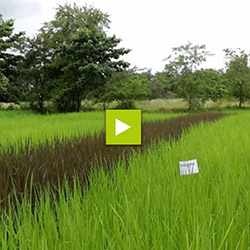
SWISSAID in collaboration with Access Agriculture has produced an instructional video illustrating the process of collecting local plant varieties in India in the frame of the CROPS4HD-Project. Local varieties often cope better with drought and other stresses, and outperform modern varieties when grown under ecological conditions.
Watch the video
Sarah Mader, SWISSAID
LinkedIn
|
s.mader@swissaid.ch
New training material for organic agriculture in Africa
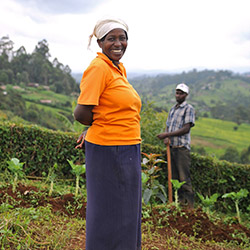
A new training material series has been published, in hopes of advancing organic agriculture in Africa. The series utilises diverse formats to communicate the results from three projects implemented by the Research Institute of Organic Agriculture FiBL in the tropics. This was possible within the framework of the GIZ project KCOA (Knowledge Centre for Organic Africa).
Read more Access the material
 Lauren Dietemann, FiBL
Lauren Dietemann, FiBL
LinkedIn
|
Lauren.dietemann@fibl.org
Who is who

Jean d’Amour Gatera
SDC Rwanda
What do you love, or what is special, about your work?
I worked for my previous consulting services for 10 years. It was a great experience overall, and I designed many training initiatives that both my company and beneficiaries still use today. I prided myself on being a trainer of trainers for public policy and use of evidence in policy development and decision making.
Prior to the international development practice, I spent seven years working in one of the highest offices in both Rwanda and South Sudan, respectively. While working in Rwanda as Political Economy Adviser for the Ministry of Agriculture and Animal Resources (2016–2019) and West Africa as Adviser for the Ministry of Agriculture and Fisheries in Sào Tomé and Principe (2019–2022), my primary job was analysing socioeconomic-political situations and finding innovative solutions that best fit the needs of the people. I hope to bring this same amount of energy to the SDC workplace, creating a sense of family and teamwork among my colleagues.
What is your favourite quote and why?
There are two quotes that I find particularly inspiring that come from two of the great moral leaders of the 20th century, Gandhi and Martin Luther King, Jr. Gandhi suggested that we should "Be the change you want to see in the world", which very succinctly advises that we are all responsible for social action, social change, and we must accept this responsibility ourselves before expecting others to do so. Martin Luther King famously said that "Darkness cannot drive out darkness, only light can do that. And hate cannot drive out hate, only love can do that." The wisdom in these words is clear. Again, we are advised to choose the right path to change and not simply react, reciprocate and "give what we get".
After more than 15 years of the international development practice experience, I chose to work for SDC just to contribute to the betterment of the people and thus be the change I want to see in the world.
What is the most important lesson you have learned from your work?
The most important life lesson I have learned is to love what I do. Your work is going to fill a large part of your life, and the only way to be truly satisfied is to do what you believe is great work. And, the only way to do great work is to love what you do.
If you haven’t found it yet, keep looking. Don’t settle. As with all matters of the heart, you’ll know when you find it. Always try to find passion or pride in your job or one aspect of it; it will always make you more driven and will allow you to stand out.
Jean d’Amour Gatera joined SDC Rwanda in February 2022 as Programme Officer in charge of Sustainable Economic Development. Prior to joining SDC, Jean worked in the Ministry of Justice as a programme officer in charge of community works as an alternative to prison for genocide perpetrators. He also worked at the French Embassy in Rwanda as deputy director before joining the office of the Prime Minister of Rwanda as Director General and Head of Government Action Coordination Unit. Since 2013, Jean has been an international consultant for the use of evidence in policy development and decision making across Africa. Jean is connected to Food Systems from the time he was advising the Ministry of Agriculture and Animal Resources in Rwanda and the Ministry of Agriculture and Fisheries in Sào Tomé and Principe. Jean holds a Master’s in Globalization Studies from University Jean Moulin Lyon 3, a post graduate diploma in Change Management from Harvard Kennedy School, USA, and a PhD in Public Policy and Administration from Bircham International University, Spain.
Comic
